
This application note presents a protocol for Sf9 insect cell culture in stirred-tank bioreactors and recombinant protein production via a baculovirus vector system.

This application note presents a protocol for Sf9 insect cell culture in stirred-tank bioreactors and recombinant protein production via a baculovirus vector system.

Cell and gene therapies offer new opportunities for the development of potentially life-saving treatments for previously incurable diseases. This eBook informs on bioprocess solutions to support novel drug development.


A must-read for all bioprocessing scientists: This eBook covers various scale-up dimensions for bacterial and mammalian cell cultures and provides input from our Eppendorf thought leaders on scale-up challenges.

Gain knowledge on the efficiency through digital tools explores the growing world of bioprocess digitalization with outlooks on feeding strategy automation and the future perspective of artificial intelligence and machine learning in bioprocessing.

Our eBook provides insight into cell line, media, inoculation, and bioreactor options for cell-based vaccine production, as well as tips on handling viral samples.

This eBook offers consultancy on increasing reproducibility in cell culture bioprocessing and, more specifically, on pH sensor handling and calibration.

Thursday, September 15th, 2022 at 4pm CEST | 3pm BST | 10am EDT Extra cellular vesicles and especially exosomes have recently gained favor for therapeutic medicine development due to possessing structures that can be modified to conveniently deliver payloads, such as specific proteins, genetic lipids, and genetic materials including messenger RNA (mRNA, and genomic DNA (gDNA) from their progenitor cell. Most recently, there is increasing interest in the therapeutic potential of exosomes produced by Mesenchymal Stem Cells (MSCs). Stirred-tank bioreactors offer the possibility to tightly control and monitor the production of exosomes, as well as the scalability, to produce increasing amounts. However, the cultivation of stem cells in stirred-tank bioreactors requires profound knowledge and precise control of the process.

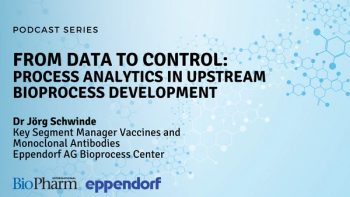
In this interview we will discuss recent strategies for upstream bioprocess analytics and how a thorough process understanding can improve product quality and process efficiency.
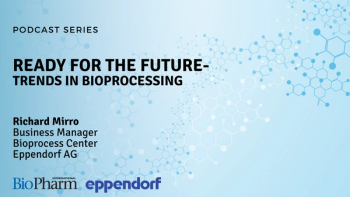
In this podcast, Richard Mirro, business manager at the Bioprocess Center of Eppendorf AG, explores how smart bioprocessing can help labs adapt to today’s demands, driving efficiency while making the development and production of next-generation molecules not only more economical, but also more reliable.

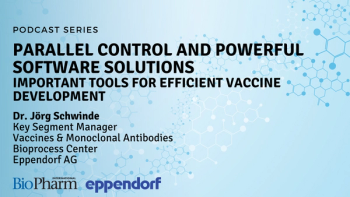
In this interview, we will talk about the typical developmental process of new vaccines and how the current Covid-19 situation influences the global vaccine developmental landscape.

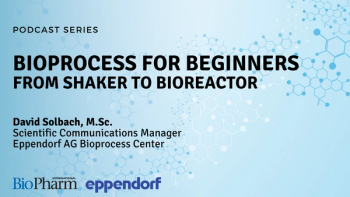
In this interview, we will talk about the advantages of changing from shake flasks to stirred-tank bioreactors, but also about the problems that can occur and things that have to be considered, in order to ensure proper cell growth.

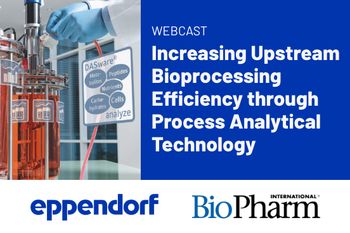
Wednesday, September 29, 2021 at 10am EDT| 7am PDT| 3pm BST| 4pm CEST Learn about strategies for inline process analytics aimed at automated feed control in an upstream bioprocess. Using the example of a Raman analyzer, a glucose analyzer, and an exhaust analyzer experts demonstrate how to achieve seamless sensor integration with the bioprocess control software.

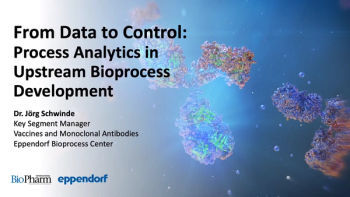
In this interview we will discuss recent strategies for upstream bioprocess analytics and how a thorough process understanding can improve product quality and process efficiency.


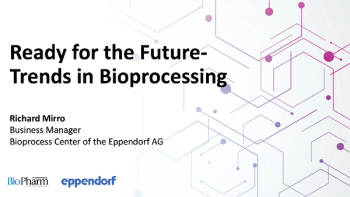

The proportional–integral–derivative (PID) control mechanism is used for a variety of processes, including dissolved oxygen (DO) control. This protocol introduces a method developed to optimize the PI values on Eppendorf bioprocess controllers.
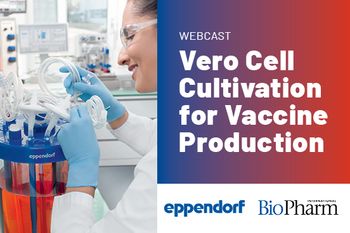
***Live: Thursday, Oct. 22, 2020 at 10am EDT| 9am CDT| 3pm BST| 4pm CEST***Process development for anchorage-dependent cells at bench scale is crucial to establish cost-efficient workflows in larger volumes. Learn how different process parameter can be monitored and controlled in a perfusion bioprocess and the potential of using packed-bed bioreactors or a microcarrier spin filter for attachment cell-based vaccine production.. *** On demand available after final airing until Oct. 22, 2021.***
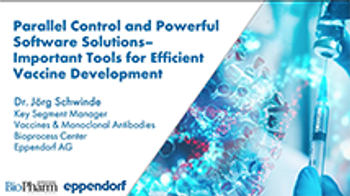
In this interview, we will talk about the typical developmental process of new vaccines and how the current Covid-19 situation influences the global vaccine developmental landscape.

• Using stirred-tank bioreactors for stem cell culture provides advantages. • Factors to consider include OTR, agitation speed, and impeller blades. • An eight-blade impeller can address challenges associated with scale-up.

Join Ankita Desai from Eppendorf and Arie Reijerkerk from Ncardia in this webcast and Q&A session to learn about the benefits of stirred-tank bioreactors for the drug discovery and development process. Get insights about how the advent of human-induced pluripotent stem cell (hiPSC) technology has substantially expanded the availability of human cells. Live: Monday, Sept. 16, 2019 at 9am EDT | 2pm BST | 3pm CEST On demand available after airing until Sept. 16, 2020 Register free

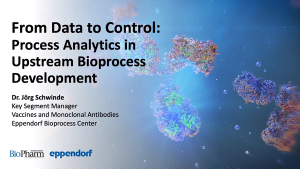
Published: June 18th 2021 | Updated:

Published: November 20th 2023 | Updated:
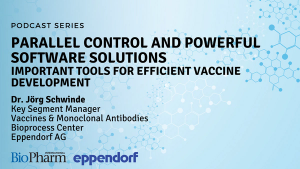
Published: June 13th 2022 | Updated:

Published: October 13th 2017 | Updated:

Published: September 16th 2019 | Updated:

Published: January 7th 2020 | Updated: